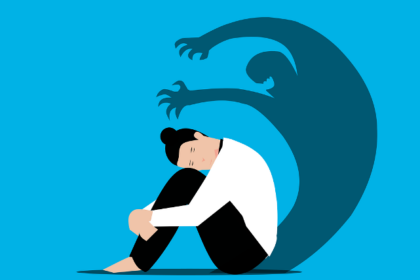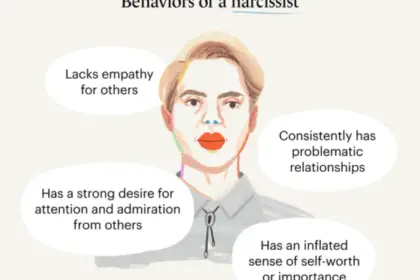There exists a delicate line between healthy interdependence and a toxic bond that slowly erodes our sense of self. This journey into co-dependent relationships is not just a clinical exploration but a deeply personal odyssey, a testament to the human spirit’s resilience in the face of emotional entanglements.
In the following pages, we embark on a raw and honest exploration of 9 warning signs that might indicate the presence of co-dependency in your relationships. As we navigate these delicate nuances, we’ll uncover the roots of toxic habits that often intertwine with the threads of co-dependency, forming a tapestry that can blur the boundaries of our individuality.
But this journey isn’t just about unraveling the intricacies of unhealthy connections; it’s about acknowledging the profound connection between co-dependency and the shadows of substance abuse. This is a story of vulnerability, shared experiences, and the unwavering human capacity for healing.
If you’ve ever felt the weight of repeating patterns in your relationships or sensed the looming risk of substance abuse, this narrative is for you. Join us as we dive into the heart of co-dependency, navigating the labyrinth of emotions, and discover the transformative steps that can guide you toward healing, self-discovery, and the promise of healthier connections. Today is the day to untangle your heart and rewrite the narrative of your relationships.
Identifying A Co-Dependent Relationship:
A codependent relationship is a kind of dysfunctional relationship where one person is a caretaker, and the other person takes advantage. Codependent relationships are extremely common among people with substance use issues.
Typically, one partner will take care of the other to the extent of enabling that partner’s addictive behavior. Often, the caretaker is raised in a family with an addicted parent and learns to placate that parent in order to make life easier for her and her siblings. This is often the oldest child, and she may repeat the pattern in her own relationships as an adult.
Codependency is not good for either partner. It allows one partner to sink deeper into addiction while forcing the other partner to completely forgo her own wants and needs in order to care for the other. Here are 9 warning signs you might be in a codependent relationship compiled by the Fort Behavioral Health team.
9 Warning Signs of a Co-Dependent Relationship
1. People Pleasing
It’s normal to want people to like you and we all want our loved ones to be happy, but there’s a difference between these normal tendencies and having to please people all the time. People pleaser’s often feel like they have no choice but to keep other people happy. They don’t like to say no, even when pleasing others substantially interferes with their own wants and needs.
2. Lack of Boundaries
People in both roles in a codependent relationship tend to have problems recognizing, respecting, and reinforcing boundaries. Having boundaries simply means you respect the other person’s right to his or her own feelings and autonomy. It also means recognizing that you aren’t responsible for the other person’s happiness. People in codependent relationships tend to have a problem where one person doesn’t recognize boundaries and the other person doesn’t insist on boundaries. Thus, one person is controlling and manipulative, and the other person is compliant and fails to assert his or her own will. Working on setting and maintaining boundaries is one of the most important skills families have to learn in family therapy.
3. Poor Self-Esteem
Typically, neither person in a codependent relationship has very good self-esteem. One person needs the approval of the other or at least needs to be of service to the other to have a sense of purpose. The other person has low self-esteem due to having to depend on someone else to meet material needs and needing validation from that person. The dependent person is often controlling out of a basic sense of insecurity that the other person might leave.
4. Care-taking
A major sign of codependency is when you feel like you have to take care of everyone all the time. This typically comes from childhood, when the caretaker learns there may be terrible consequences from failing to take care of a parent’s needs. As a result, she may feel compelled to take care of others, especially a partner, not so much out of affection, but from the fear that something bad will happen if she doesn’t. Most people can get by fairly well on their own, and feeling like things will go terribly wrong if you don’t take care of them is often a sign of codependency.
5. Reactivity
When your identity is based on pleasing others and you feel responsible for everyone’s well-being, you might find yourself reacting to situations rather than acting out of your own volition. You might find yourself being defensive or easily internalizing criticism. This results in losing touch with your own wants and needs, which makes it harder to be proactive. It is also partly a result of your inability to set boundaries so that you feel responsible for someone else’s feelings.
6. Poor Communication
A codependent mindset makes it hard to communicate effectively. The caregiver is often unaware of her own wants and needs, and when she is aware of them, she may be reluctant to express them. She may feel like caring for the other person is the most important thing, or she may fear upsetting the other person by asserting herself. The dependent person may be in the habit of communicating dishonestly, more interested in maintaining control than in actually communicating. Communication is another crucial skill to learn in family therapy. Both people have to learn to communicate honestly and effectively.
7. Lack of Self-Image
The caregiver may have low self-esteem, or she may not have much of a self-image at all. Often, the caregiver defines herself mainly in relation to the other person and may have no idea who she is without having that role to play. This is why the caregiver is also dependent, even though she is the one taking care of practical matters and could probably get along just fine without the other person.
8. Dependency
Of course, dependency plays a major role in codependency. Each person needs the other for something. One person needs her material needs to be met because addiction or other issues have impeded her autonomy. The other person needs validation and a sense of purpose from taking care of someone. In a way, it’s a trade-off, but it also limits both people involved.
9. Relationship Stress
As you might expect, any of these factors can put a lot of stress on a relationship. When you can’t communicate or respect boundaries, you’re bound to have problems. The caretaker often feels a lot of stress about doing everything right, while the dependent person often feels insecure about being abandoned by the caretaker. Both are afraid to be alone, but neither is particularly happy. There may not be many fights since one partner is typically committed to keeping the other happy, but both are likely to feel stressed nonetheless.
Healing The Co-Dependency
As we navigate the labyrinth of co-dependency, we arrive at a crucial juncture — the moment where self-discovery and healing intertwine. Recognizing the signs and acknowledging the impact of toxic habits in your relationships is a profound act of self-awareness. Now, let’s embrace actionable steps toward breaking free from the clutches of co-dependency and fostering a path to personal revival.
- Self-Reflection: Begin by delving into your own emotions and needs. Understand the patterns that characterize your relationships and reflect on the roles you play. Self-awareness is the cornerstone of transformation.
- Establish Boundaries: Learning to set and enforce boundaries is a powerful tool in breaking the cycle of co-dependency. Clearly communicate your needs, recognize your limits, and prioritize your well-being.
- Seek Support: Surround yourself with a network of friends, family, or professionals who can offer guidance and support. Sharing your experiences with trusted individuals can provide new perspectives and insights.
- Therapy and Counseling: Professional guidance can be instrumental in navigating the complexities of co-dependency. Therapists and counselors can help you explore the root causes, provide coping strategies, and assist in reshaping your relational dynamics.
- Self-Care Practices: Prioritize self-care as a daily ritual. Engage in activities that bring you joy, practice mindfulness, and invest time in activities that nurture your physical and mental well-being.
- Educate Yourself: Knowledge is empowerment. Learn more about co-dependency, its effects, and healthy relationship dynamics. Understanding the dynamics at play equips you with the tools needed for positive change.
- Set Realistic Expectations: Release the burden of perfection. Understand that personal growth is a journey, not a destination. Celebrate small victories and be patient with yourself as you navigate the complexities of healing.
Remember, the road to healing is a personal expedition, and every step forward is a triumph. By actively engaging in your own well-being, you not only break free from the chains of co-dependency but also pave the way for authentic, nurturing connections. Your story is one of resilience, and with each intentional choice, you craft a narrative of strength, self-love, and the promise of healthier relationships ahead.





